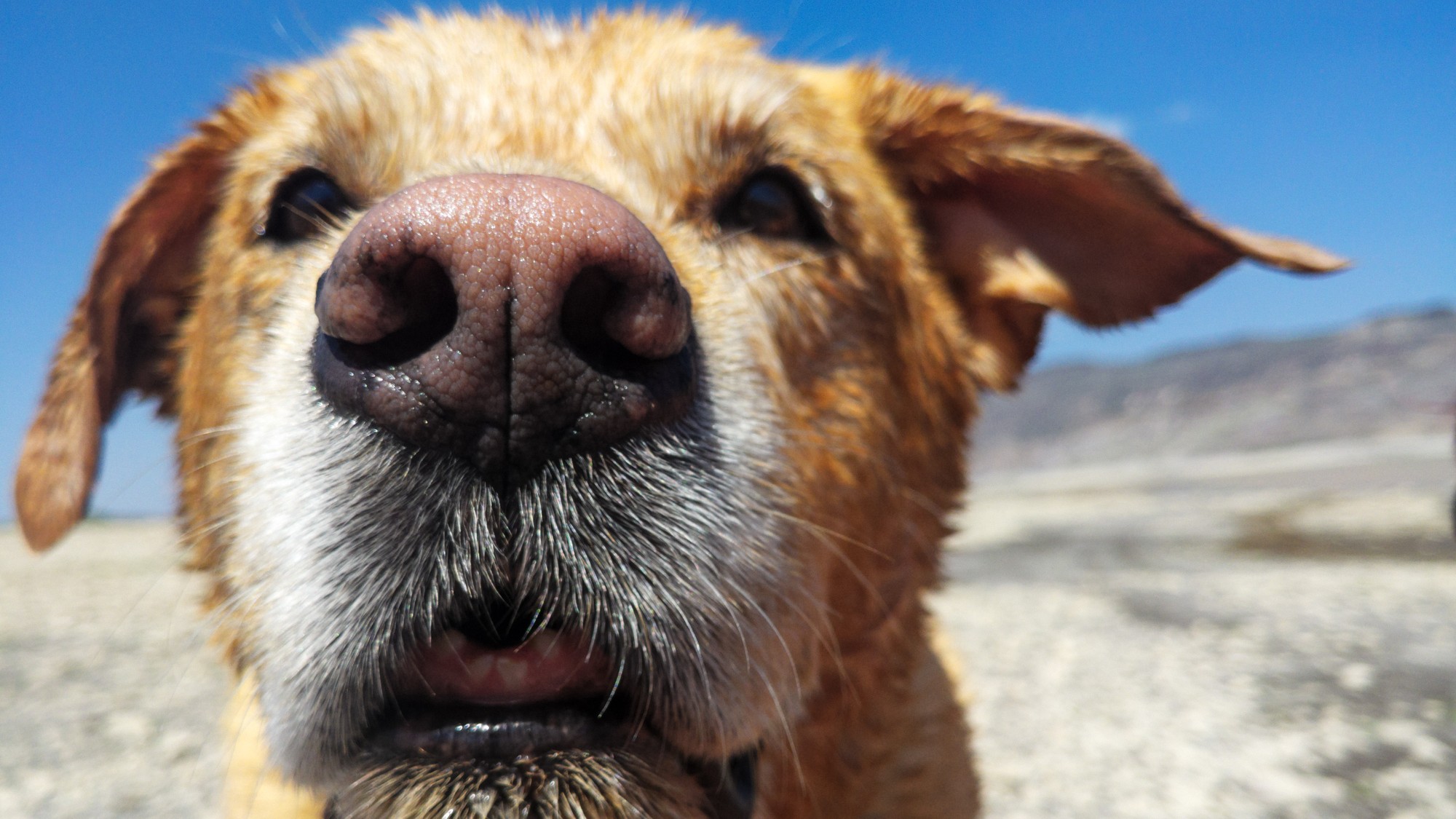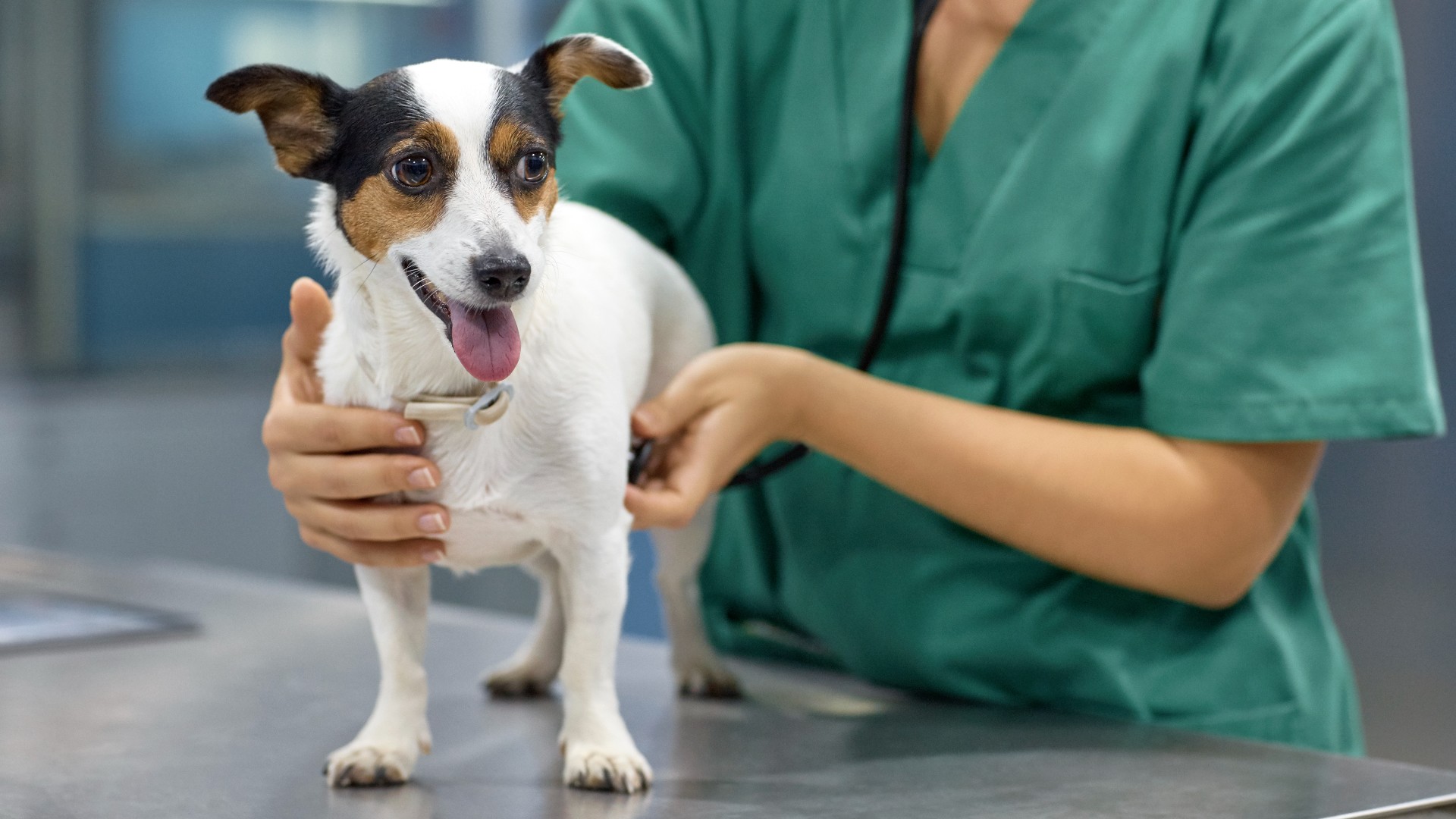Why does my dog smell like fish? Anal sac disease explained
If you've noticed your dog smells like fish, anal sac disease is likely - don't fret, we've got all the answers you'll need

Wondering 'why does my dog smell like fish'? If you're the owner of a pet pooch, it's more than likely you've considered this very question at some stage.
After all, our canine companions may be loveable but they're pretty prone to smelling bad too, generally owing to their love of rolling in stinky things and playing in the mud.
But what if even after a bath they're still pretty pongy? Don't worry, there's a very clear answer for this disconcerting smell, although it is something you should consult a veterinarian about. In some cases, it could have to do with your dog's diet, so check out the best dog food options just in case.
Your dog most likely smells fishy because of anal sac disease, which certainly sounds rather gross. But anal sac disease is a very common ailment amongst dogs, especially smaller ones.
Larger dog breeds tend to not be affected as often. And in many cases, anal sac disease is easily treatable - it's when the anal sac disease has been left untreated that more serious problems can occur.
We've got all the answers you'll need about anal sac disease right here, so read on.
What is anal sac disease?
Anal sac disease is actually quite common in dogs. Anal sacs are two small pouches lined with sweat glands that are on either side of your dog's anus. Your dog will use these to secrete fluids that act as territorial markers, but from time to time they can get impacted.
Get the best advice, tips and top tech for your beloved Pets
Since the secreted fluids are an ideal space for bacterial growth, this can cause abscesses to form which can become infected.
There are actually several kinds of anal sac diseases that include impacting, anal sacculitis, and anal sac abscess - basically, any sort of issue with the anal sac is considered part of the disease umbrella.
What causes anal gland problems in dogs?
Anal sac disease can be caused by many things, most of which have to do with your dog's diet.
If your dog is shooting their rear on the floor, excessively licking their anus area, struggling to defecate, or has blood or puss near their rectum or in their stool, it's likely that they're going through some anal sac issues.
Here's what could be causing it:
- Genetics - it's more common for smaller breeds to have anal gland issues, but no breed is immune to it
- Chronic skin issues like dermatitis
- Obesity
- Poor dietary fiber
- Food/environmental allergies

How do you treat anal sac problems in dogs?
You'll want to consult your vet if you suspect anal sac disease or other anal sac problems. If it is just a simple impaction, your vet will express the anal sacs to flush out whatever is stuck in there and potentially treat the area with anti-inflammatory or antibiotic meds. In some cases, your dog may need to be sedated for this.
If the anal glands are infected, they will need to be expressed and your dog will need to be given oral antibiotics to treat the infection. If they are abscessed but have yet to rupture, your vet may need to perform surgery to cut the abscess off.
Preventing anal sac disease
Make sure your dog is on a healthy, well-balanced diet to ensure that they have regular bowel movements that are solid - but not too solid.
A proper diet and adequate exercise will help keep your dog at a healthy weight, as obesity can also cause anal sac disease.
If your dog has a history of anal sac issues, make sure your vet checks/expresses them at every visit. Anal sac disease is treatable and preventable, so don't fret!
